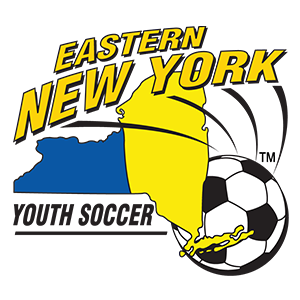By Tim Bradbury, Director of Coaching Instruction, Eastern New York Youth Soccer Association
The youth soccer landscape is more fragmented and complicated than ever. I am not sure whether those ingrained in the youth soccer scene truly understand it. Keeping track of the changes at all levels of the game is practically a full-time job. So trying to ascertain what may be the best developmental place for a player is difficult at best. I believe it is also difficult for any club to decide which leagues, cups, winter events etc. to play in to form the best possible developmental program for its players.
I firmly believe that in the current youth climate, Clubs need to evolve to become TRUE CLUBS and not just a collection of teams playing under the same name and same colors. To this end, I urge any club seeking to offer a transformational rather than transactional experience for their players follow the recipe offered below:
1. Decide on your philosophy and associated core values – include your non-negotiables, those things that you will simply never go back on.
2. Take the above and build your mission statement – the WHY of what you offer.
3. Based on one and two above, you should be in a place to define specifically your playing style and coaching methodology.
4. The quality of your coaches will be the major factor on the developmental projectory of your players so be sure to have a definite policy on A. Their responsibilities, B. Their job description, C. The qualifications required to fill the role.
5. For each age group, design a specific calendar of events and be sure to include number of games and training sessions
6. For the parents – acknowledge their importance and engage with them on a regular basis. Include a calendar of Club-wide parent meetings by age and team specific parent meetings.
7. For your board and for your coaches, be sure to build a calendar of events that include work meetings, social meetings and development meetings.
8. For your whole club, create a calendar of social events that go beyond soccer. Create a social environment that shows the parents and players you care about them beyond soccer.
9. Create a feedback mechanism that works throughout the Club and enables open and honest communication
10. Design a job description for one or more Director of Coaching’s that enables them to focus on coach development rather than player development
11. Create a pass-back program that is responsible for ensuring that those players old enough develop some sense of social responsibility and give back to the community your club is placed within.
12. Schedule a series of player meetings based around helping them deal with the stresses of being a student athlete –some examples: goal setting, dealing with stress, nutrition and rest, college process.
13. Set up a definite plan for the manner in which disputes and problems are handled. One which is open, honest and fair.
14. Design and have in place a Grow the Game Committee, that is responsible for growing the game by offering soccer participation programs to kids who do not yet play.
I believe that if we can redefine Clubs and the way they function, all our players, parents and coaches will be much more likely to stay in the game for life.

